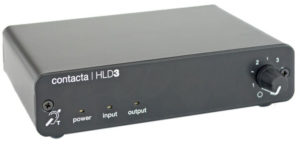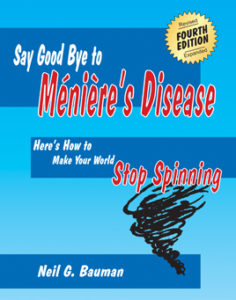by Neil Bauman, Ph.D.
A man recently wrote:
Thank you for your research into Musical Ear Syndrome (MES). Also, thank you for your website postings on the subject, and for your book “Phantom Voices, Ethereal Music & Other Spooky Sounds”. My condition is similar to other people that you describe, but there are a few differences. And more importantly, I want to tell you how I have nearly cured myself of MES.
I have had MES for about 11.5 years. I am 53 and in otherwise good health. I am not hard of hearing. However, all my adult life, I have been acutely sensitive to noise when trying to sleep. I run a fan at night to block out noise when sleeping. I played clarinet & violin in school, but played nothing as an adult. I enjoyed classical and rock music as an adult, until the onset of MES.
I cannot pinpoint the exact onset of MES, but my best estimate is August 1996. Living in an apartment, I thought that neighbors were playing music all night. At first, I only heard the music while trying to sleep. Back then I also heard radio & TV sounds. I could hear a voice (sometimes dialog), tones of voice, and content (beer commercials, radio comedy, nature programs, etc.), but I could never quite make out the words. Eventually, I only heard music.
I approached neighbors, asking them to turn down their music. Naturally, they denied that they were playing music. Eventually, I started hearing music during daylight hours. It was so real I firmly felt that the music was external—that it was coming from the outside, not from within me. I would walk through my neighborhood, trying to find the source of the music. For the first three months or so, I insisted that the music was external to me.
By November 1996, I was starting to break down. The music was so loud and intrusive, that it prevented me from sleeping. I could only get 1 to 2 hours of sleep per night. I could not concentrate, eat, or sleep. My time-horizon contracted to simply getting through the day. The music nearly killed me through sleep deprivation.
There was one odd correlate to the music. It would increase in volume whenever background white noise increased in volume. This puzzled me greatly, because I was accustomed to masking intrusive noise with white noise. But white noise just made the problem worse.
The only way that I could convince myself that the music was in my head, and not external, was to leave the city. A friend and I took a road trip. When the music remained unchanged, I realized that this was a hallucination—something in my brain.
I started going to neurologists and psychiatrists in December 1996. If nothing else, I had to get sleep, or I would die. In all, I saw 3 neurologists and 3 psychiatrists. The neurologists couldn’t find anything wrong via their standard tests (EEG, MRI, blood & urine tests). I received a variety of diagnoses—depression, obsession-compulsion, schizophrenia, malingering, etc. I went through about 25 medications, trying to suppress the music. I also had to take medication simply to get sleep at night.
Only three medications had any effect on the music. The first two, Tegretol and Topamax, worked OK, but they only lasted about three months. I finally tried Klonopin, and that was nearly a miracle. It suppressed the music 48 hours after I started taking it. My dosage was 2 mg/day. Even more miraculous, it suppressed the music for over 7 years. I did not need to increase the dosage over time. I settled on a pseudo-diagnosis of “seizure”, because these three medications were all anti-seizure medications.
The Klonopin did not completely eliminate the music, but it made everything much better. The music was much softer and less intrusive. I could sleep without taking other medication. And the music became a few monotonous bars, rather than a complete orchestral symphony that changed melodies every 10 seconds.
One psychiatrist nearly diagnosed it correctly. He did not have a name for it, but he said that it sounded like an aural analog of the Charles Bonnet syndrome [where you see phantom sights]. To me, this sounded exactly like what I had. My problem did not have a name, but I could understand it as the auditory (music) perception neurons of my brain activating themselves without actual auditory input.
I analyzed and tried many things to see if anything was related to the music. The only things that affected the music were white noise (made it worse) and the three anti-seizure medications that could lessen the music. Alcohol, diet, rest, sleep, stress, any particular emotion, other sounds/noises, magnets to my head(!), various mental exercises—none had any effect on the music.
At its worst, before Klonopin, the music was loud, varied, and elaborate. It was simultaneously beautiful and oppressive. It constantly ran every waking minute, and sometimes in my sleep. (I would hear music in a dream, wake up, and hear the same music upon awaking). The melody would change every 10 – 15 seconds. It was common for the music to cycle through a dozen different melodies (Christmas songs, songs from childhood, TV jingles, and classical music were the most frequent types of melodies) within a 2-minute period.
At times, the music became extreme. At least three times, I heard two different orchestras playing simultaneously. Once I heard a mostly-string orchestra play Mozart, while a mostly-brass band played “Deep in the Heart of Texas”. At least 4 times, I heard beautiful, elaborate music, but melodies I had never heard before (usually strings and low-frequency wind instruments). It seems my brain was actually composing new music, melodies I had never heard before.
You have heard of similar or identical symptoms before. What I wish to share with you now is how I have suppressed MES. I cannot say that I am cured, for I still hear some music every day. But I have not taken any medication to the suppress the music, or to fall asleep, in over a month. I think that what worked for me might work for others.
What I did goes by many names—self-hypnosis, auto-suggestion, affirmation—I will call it self-hypnosis. I read how to do self-hypnosis, hoping that it could help me ignore the music as it could be used by some to ignore chronic pain. Through trial and error, I emphasized some aspects of self-hypnosis, and jettisoned others.
The self-hypnosis instructions I read emphasized the need for a “perfect” trance, the need to be in a trance for 15 – 20 minutes before listening to the actual script. This was too tedious and time-consuming. I just sit/lay back in a dark, quiet room, close my eyes, and after a minute of relaxing and clearing my mind of mental chatter, I listen to my script.
It was difficult to write the script. There was no pre-written script that I could use for such an odd problem. The literature says to use the present tense, use 1st person, only use positive-sounding words, use rhythm, repeat themes and phrases with some variation, and to visualize what you want to achieve.
It is hard to find words for “anti-music”. The word “music” normally has positive connotations. If I want to be rid of music, I cannot use the word “music” in scripts. It is also hard to define a positive script when the goal is to eliminate something. Eventually, I settled on concepts of silence, quiet, peace, and tranquility. These have positive connotations, and are opposed to constantly hearing music.
To give structure to the script, I thought of about 10 situations where the music is particularly bothersome (when trying to fall asleep, when hearing white noise, while working at my computer, etc.). The sentences of the script are along the lines of: “When XXX happens/occurs, I ZZZ”, where ZZZ is one of 1) I actively create silence, 2) the silence naturally happens, and/or 3) I enjoy the silence.
This was not a quick fix. It took me 18 months to get to the point where I did not need to take any Klonopin. The self-hypnosis has no immediate effect. I only started to hear/feel an effect after about 10 weeks. I did not fully believe that self-hypnosis would be helpful, but I was desperate, so I did it every night before I went to bed. After the first 10 weeks, I took a slightly lesser dosage of Klonopin, and found I could get away with it. About every month after that, I found that I could take a slightly lesser dose.
I had Klonopin withdrawal symptoms—mostly insomnia, headaches, and muscle twitches. However, because I withdrew so slowly, it was manageable.
I hope that by reporting my experiences, others will be able to get relief from MES as well.
Thanks so much for letting me use your experiences. I’m sure this will help others who also struggle with the effects of MES.
Note 1: The above person does not fit the typical profile of a person with MES—typically a) elderly, b) hard of hearing, c) has tinnitus, d) lives in quiet surroundings and e) is anxious and/or depressed. Therefore, both the cause of the MES and the “cure” may be somewhat different as described above.
Note 2: Klonopin (Clonazepam) belongs to a class of drugs called benzodiazepines. If you take any benzodiazepines for very long, you can form a dependence on them. Once this dependence is formed, getting off a benzodiazepine can be very difficult, and for some, nigh impossible. So I do not recommend taking such drugs for longer than stated in the manufacturer’s guidelines—which is typically 2 or 3 weeks at the most.
To learn more about Musical Ear Syndrome and what you can do about it, read the article “Musical Ear Syndrome—The Phantom Voices, Ethereal Music & Other Spooky Sounds Many Hard of Hearing People Secretly Experience“, or get the book, “Phantom Voices, Ethereal Music & Other Spooky Sounds“.


